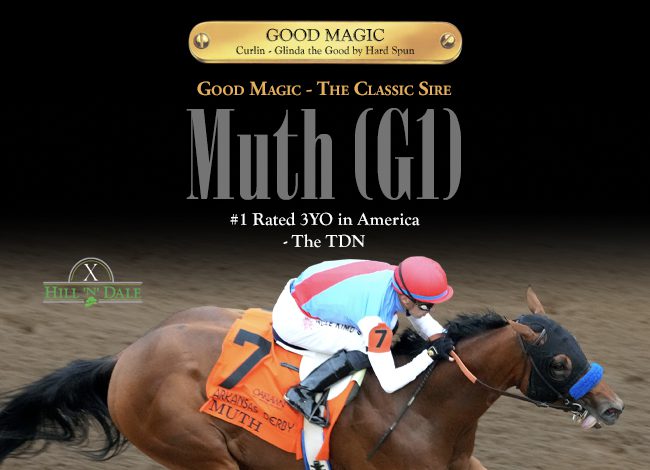By Len Green
COVID-19 has changed the way we go about our daily lives. It has also increased the number of individuals who are self-employed and have no other employees, also known as independent contractors.
The formal definition of an independent contractor is a person or entity contracted to perform work for, or provide services to another entity as a nonemployee (meaning that the employee is “at will” and not eligible for an employer's health or retirement benefits). The general rule is that an individual is an independent contractor if the payer has the right to control or direct only the result of the work and not what will be done and how it will be done. The earnings of a person who is working as an independent contractor are subject to self-employment tax.
Self-employed professions such as jockeys, jockey agents, confirmation videographers, bloodstock agents, blacksmiths, veterinarians, exercise riders, equine chiropractors, bid spotters/auctioneers, sales short listers, etc. are all possible examples of horse-related independent contractors.
Prior to the enactment of the new tax act in 2017, if you operated your business as a sole proprietor, you could still take advantage of many of the tax deductions that you incurred. With the adoption of the new Tax Act came a limitation on the deductibility of state income taxes, real estate taxes and the elimination of all personal business-related expenses.
Expenses that Could Become Tax Deductible
There are a number of expenses, if you are in the above categories, that can be tax deductible such as the following:
a. Training–training expense whether for racing, shows or for sales become deductible
b. Professional fees
c. Veterinary fees
d. Vanning and other transportation expenses–if you own racehorses and/or consign horses at sales, you should be sure to include all transportation expenses
e. Work clothing–all of you involved in the training side of the business, including jockeys, should deduct any garments/outfits that are primarily worn while riding, breaking or training horses
f. Barn and stable supplies
g. Feed and shavings; as well as removal expenses
h. Books, magazines, online subscriptions and/or sales analysis reference guides
i. Breeding fees
j. Broodmare leases
k. Meals for employees who were taking care of the horses
l. Equine therapy
m. Depreciation (including bonus depreciation)
In order to ensure that you are maximizing the above deductions, be sure to communicate with your tax provider. Have your accountant confirm your status as an independent contractor and indicate that status on your tax returns. If you want additional legal protection, you may want to either form an LLC which provides you with additional liability protection or a Subchapter S Corporation.
Important Additional Fact
The deductions listed above are, in most cases, equally tax deductible for partners in an LLC or shareholders in Sub Chapter S corporations.
Increasing Your Retirement Contributions
Most independent contractors can make retirement contributions into an IRA. The annual contribution limit for 2020 is $6,000 or $7,000 if you are age 50 or older. If you have a Roth IRA, the 2020 contributions may also be limited based on your filing status and income.
However, there is a plan that will allow you to greatly increase your retirement contributions and simultaneously reduce your taxable income. A Solo 401(k), also known as a Self-Employed 401(k) or Individual 401(k) is a 401(k) qualified retirement plan that was designed specifically for employers with no full-time employees. The Solo 401(k) is unique because it only covers the business owner(s) and their spouse(s), thus, not subjecting the 401(k) plan to the complex ERISA (Employee Retirement Income Security Act of 1974) Rules which sets minimum standards for employer pension plans with non-owner employees. Independent contractors who qualify for the Solo 401(k) can receive the same tax benefits as in a general 401(k) plan but without the employer being subject to the complexities of ERISA.
The contribution limits for the Solo 401(k) are the same as a standard 401(k). They are broken down into a profit-sharing contribution, which comes from the employer and a salary deferral contribution which comes from the employee. However, due to the fact that in a Solo 401(k) the plan holder is acting both as employer and employee, the actual percentages assume a more meaningful role. If the plan holder is filing as a Sole Proprietor or Single Member LLC, which is true in most cases, then the limit is capped at 20% of the self-employed income, plus $19,000 for 2020. IRC Section 401(a)(3) states that the amount of employer contributions is limited to 25% of the entity's income subject to self-employment tax. Schedule C sole proprietors must do an added calculation starting with earned income to determine their maximum contribution which, in effect, brings the maximum 25% of compensation limit down to 20% of earned income.
In both cases, the IRS has declared an upper limit for total employer and employee contributions to a plan, the IRS Section 415(c) limit which may not be exceeded. As of 2020, this upper limit is $56,000 for those under 50 and $62,000 for those 50 and older.
Other contribution limits may apply so we highly recommend that you discuss your options with your tax professional and/or investment advisor.
There may be alternative retirement plans such as SEP which you may be eligible for.
Bottom Line
The Thoroughbred horse business is like no other business when it comes to its complexity, challenges and strategies.
The same can be said as to how to maximize your tax deductions.
If you have any questions, please contact Len Green [email protected] or Jim Benkoil [email protected] at The Green Group or call us at 732.634.5100.
Not a subscriber? Click here to sign up for the daily PDF or alerts.






